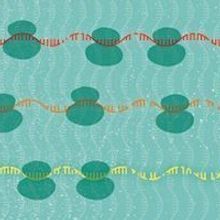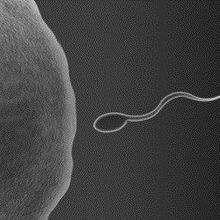noncoding RNA

The Noncoding Regulators of the Brain
Christie Wilcox, PhD | Sep 12, 2022 | 10+ min read
Noncoding RNAs are proving to be critical players in the evolution of brain anatomy and cognitive complexity.

Infographic: Noncoding RNA in the Brain
Christie Wilcox, PhD | Sep 12, 2022 | 4 min read
Neurologically important noncoding RNAs come in many shapes and sizes.

Infographic: Questions Linger About Epigenetic Inheritance
Catherine Offord | Apr 4, 2022 | 3 min read
Some studies suggest that associations between the health of children and the experiences of their parents or grandparents may be due to epigenetic mechanisms, but confounding factors challenge this interpretation.

Does Human Epigenetic Inheritance Deserve a Closer Look?
Catherine Offord | Apr 4, 2022 | 10+ min read
The concept of epigenetic inheritance has long been controversial. Some researchers hope that new data on cross-generational effects of environmental exposures will help settle the debate.

Noncoding RNA Improves Symptoms in Mice with Metabolic Disorder
Abby Olena, PhD | Aug 6, 2021 | 4 min read
A long noncoding RNA from humans appeared to help the enzyme phenylalanine hydroxylase work better in a mouse model of phenylketonuria, the disorder characterized by reduced activity of that enzyme.

Newly Discovered Glycosylated RNA Is All Over Cells: Study
Christie Wilcox, PhD | May 18, 2021 | 8 min read
Prior to a 2019 preprint, “glycoRNAs” weren’t known to exist. Now, the researchers who found them say they’re on lots of cells and may play a role in immune signaling.

How RNAs Called SINEUPs Upregulate Translation
Catherine Offord | Jan 1, 2021 | 2 min read
The recently discovered long noncoding RNAs seem to boost the production of specific proteins in the cell by interacting with RNA-binding proteins, researchers find.

RNA Moves a Memory From One Snail to Another
Ashley Yeager | May 14, 2018 | 4 min read
Injecting molecules from a sea slug that received tail shocks into one that didn’t made the recipient animal behave more cautiously.

The RNA Age: A Primer
Ruth Williams | May 11, 2017 | 3 min read
Our guide to all known forms of RNA, from cis-NAT to vault RNA and everything in between.

Noncoding RNA Helps Cells Recover from DNA Damage
Diana Kwon | May 1, 2017 | 2 min read
Scientists discover transcripts from the same gene that can express both proteins and noncoding RNA.

Study: Most Long Noncoding RNAs Likely Functional
Kerry Grens | Mar 1, 2017 | 2 min read
Nearly 20,000 lncRNAs identified in human cells may play some role in cellular activities.

Research at Micro- and Nanoscales
Mary Beth Aberlin | Jun 1, 2016 | 3 min read
From whole cells to genes, closer examination continues to surprise.

Noncoding RNAs Not So Noncoding
Ruth Williams | Jun 1, 2016 | 10+ min read
Bits of the transcriptome once believed to function as RNA molecules are in fact translated into small proteins.

Finding Mislabeled Noncoding RNAs
Ruth Williams | May 31, 2016 | 1 min read
Researchers scour the genome for micropeptides encoded within RNAs presumed to function in a noncoding capacity.

Dial It Up, Dial It Down
Kelly Rae Chi | Mar 1, 2016 | 7 min read
Newer CRISPR tools for manipulating transcription will help unlock noncoding RNA’s many roles.

Obesity Alters Sperm Epigenome
Karen Zusi | Dec 3, 2015 | 2 min read
Moderately obese men display different epigenetic marks on their sperm than lean men, and bariatric surgery in massively obese men correlated with changes in sperm methylation.

Riboswitch Flip Kills Bacteria
Ruth Williams | Sep 30, 2015 | 3 min read
Scientists discover a novel antibacterial molecule that targets a vital RNA regulatory element.

Not So Noncoding
Jenny Rood | Jun 1, 2015 | 2 min read
An RNA thought to be noncoding in fact encodes a small protein that regulates calcium uptake in muscle.

New Legs to Stand On
Mary Beth Aberlin | Jun 1, 2015 | 3 min read
Reconstructing the past using ancient DNA
